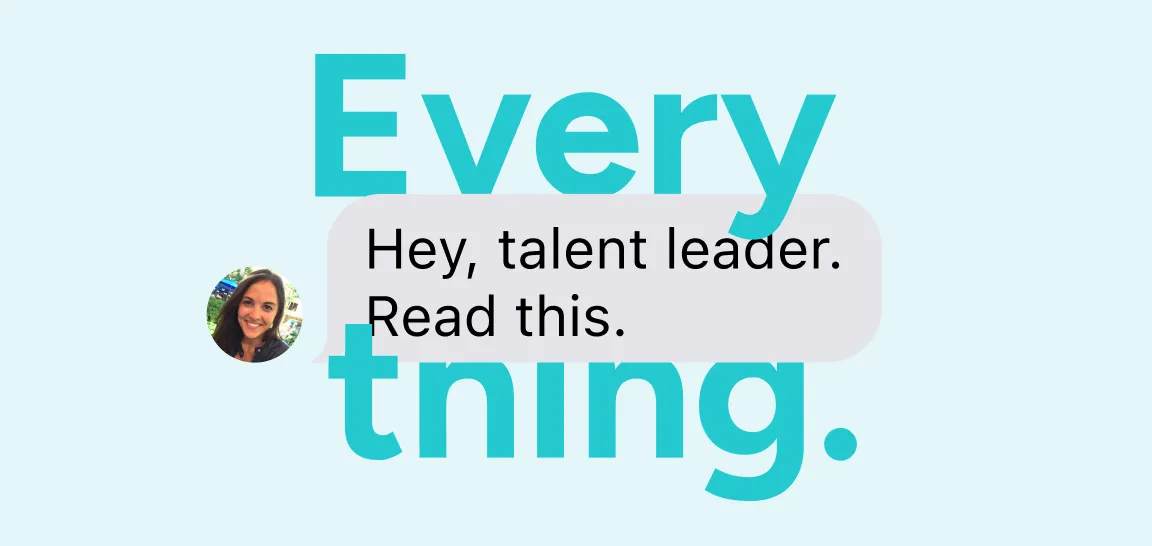This is an excerpt taken from a longer article titled "Everything a talent leader needs to know about AI in recruiting." You can read the full piece here.
Let’s start with the bad before we get to the good. Or rather, the lack of bad. Here’s what AI is not impacting (that you might have feared it was):
- AI is not completely replacing recruiting teams.
- It’s not making recruiting processes more complicated.
- And it’s definitely not creating more work.
- Oh, and it’s not making things feel “less human”, either.
AI doesn’t replace recruiters and hiring managers, it makes them better; AI doesn’t create more work for them, it removes it; AI doesn’t facilitate robotic, stilted experiences, it actually puts an ever greater emphasis on person-to-person interactions.
In other words: Augmentation of historically dreadful processes and roles.
And in other, other words: Enabling recruiters to actually recruit, and store managers to actually manage their stores. Recent Aptitude research states that one in three recruiters are burnt out — imagine if you had an assistant to help you get recruiting and hiring work done. What would you have that assistant do for you?
In a sense, this advancement in AI simply allows us to get back to basics. Recruiters were never meant to toil away in front of computer screens, exhaustively navigating clunky software for hours on end. Their true value is cultivating a sense of trust with applicants and identifying the right candidates to hire so their organization is constantly fueled with the talent it needs. Only a human can do that. Well, only a human with adequate time and resources.
AI gives them that time.
So what’s the biggest impact AI has in talent acquisition?
It’s automating the tasks that recruiters and hiring managers shouldn’t do (scheduling interviews) or can’t do (screening dozens of applicants at once), and giving them the time back to focus on the tasks that only they can do (preparing for interviews, building trust with candidates, making final hiring decisions). AI is augmenting what it means to be a recruiter and enabling them to focus on more fulfilling work. And 97% of recruiters agree that it's been a value add to their hiring process.
OK, now about that word. Augmentation. It could be a little scary, but don’t let the TA industry’s glacial adoption of technological advancements or aversion to “replacing” people get you hung up — the concept of “augmenting" work isn't a novel concept. It’s been around for years and is applied effectively in a number of different fields. For example, AI is used in military defense systems to target dozens of missiles traveling 5,000 miles per hour and shoot them down instantaneously. No human could do that. But when the tables are turned and the military needs to decide to fire at an opposing force, only a human can do it. AI does not possess the moral, ethical reasoning, nor the accountability to make those types of judgment calls.
The decisions being made in TA everyday are less dire, of course, but still critical in their own right. And the same logic applies. AI handles the interview scheduling for many of our clients, scheduling thousands of complex interviews per day while speaking over 100 different languages. No human could do that. And yet, when the emotion gets deep on a life-changing move, convincing a candidate to move across the country or take a job with a promising startup, AI can’t gain that person’s trust to convince them to join. Only a human can do that.
Without AI, the job of a modern (let alone a future) recruiter is simply not scalable. And without humans, TA as a function is simply not controllable or manageable in a way that it needs to be to ensure business success.












